I’ve been thinking back, trying to figure out which recent shows have seen the biggest gap between their quality and the attention they receive. Mars Red comes to mind, though that’s a couple years ago now. There aren’t many at the standard of AI no Idenshi, that’s for sure. This show is operating on a very high level every week, without an ounce of ostentatiousness. I admire shows that make the audience think (only if they choose to, of course). And even more, that trust the audience to do that, and don’t put everything together for them.
With only a couple more episodes left, it was inevitable that the Super-AI arc kick in at some point. There are two completed manga in the canon – an 8-volume original and and a 5-volume sequel. So an ending is there for the anime if it chooses to use it, though adapting even eight volumes in 12 eps seems harrowing. I can’t imagine this getting a second season (or having been greenlit as a split cour) so whatever we get is likely to be the end of it. The anime has gotten through ten episode with grace and elegance, so in that respect it’s earned my trust.
Once again there are two chapters this week. The difference in not that they’re thematically connected (that’s always the case) but that they’re connected to the overarching subplot. The first involves a humanoid doctor named Gohongi, who we meet as he walks out on a brain surgery after looking up at the surveillance camera. The next time we see him he’s stabbing a woman to death in her apartment – rather a shocking act in its incongruity with what we’ve seen in the first nine episodes. He’s captured by the cops pretty quickly, and Sudo is brought in as an expert advisor for his interrogation.
No doubt AI no Idenshi likes to present the two sides of every issue, and let us make up our own minds. And no doubt, cold-blooded murder of a bystander cannot be justified. But what Gohongi believes is happening in the world clearly has roots in truth. He asks the right questions – like, how is it that with all this incredible A.I. tech, life hasn’t really changed that much? Occam’s Razor does indeed suggest that it’s because the super A.I. want it that way. Gohongi talks of the butterfly effect to justify his heinous crime – he’s convinced that the murder of the woman (why is not made clear) will lead to the conspiracy being exposed.
That may or may not be nuts, we don’t know. But Gohongi is certainly right that super A.I. wouldn’t need magic beams or drugs to exert mind control – with their smarts, conventional means (like the media) is plenty. And as usual with this series, the implications for the present become uncomfortably apparent. These are big ideas to trade in even by AI no Idenshi standards, but the second chapter doesn’t lower its sights in any way. It’s the story of a humanoid woman named Teshigawara who’s become a guru because of her theories about the afterlife, and the reporter who’s determined to expose her as a fraud and a charlatan.
“If science can’t provide salvation, isn’t it human nature to seek it elsewhere?”. That’s a deep and disturbing notion, and essentially the heart of this second story. Teshigawara’s theory – it’s never clear if she herself believes it – is that super A.I are effectively Gods, maintaining another plane of existence which they guide human souls to (only the ones that deserve it) after they die. This is the reason there’s no little progress on our plane – they’re expending their energy maintaining the other one. And those they choose to contact with this information are revered as prophets and religious visionaries for their knowledge.
The dichotomy AI no Idenshi presents us isn’t so much whether Teshigawara’s story is true – it’s pretty clearly a fantasy – but whether it’s wrong to offer it to others as a means of finding peace. Teshigawara is a former researcher (possibly a teacher or even classmate of Sudo) who spends her followers’ money on anti-aging treatments to try and forestall the pre-programmed death that Michi has given to all humanoids. This is certainly hypocritical, though she denies that when pressed by the reporter. But for her followers – the old, the sick, those that have lost loved ones – her vision gives them hope.
That includes the reporter’s humanoid father, himself obviously nearing the end. And this is not lost on her, clearly – science has given neither she or her father any solace. Again, the real-world implications are obvious – the sci-fi is the canvas, not the painting. And as usual, it’s not a black-and-white scenario where we’re told what the right thing to think is. As we move into the final phase of the anime’s story – Michi is going to bribe Sudo into meeting him with information about his mother – it seems likely that AI no Idenshi is going to try and tie all the grand ideas it’s bandied about together. That’s a big ask but once more I say, it’s earned my trust.


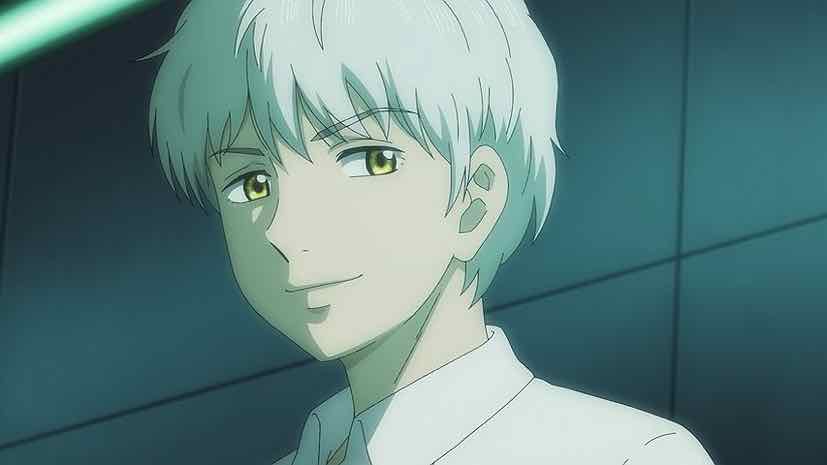
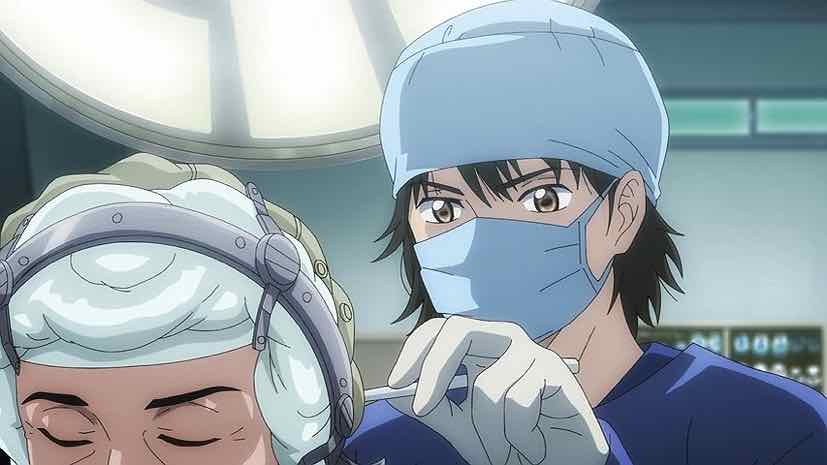
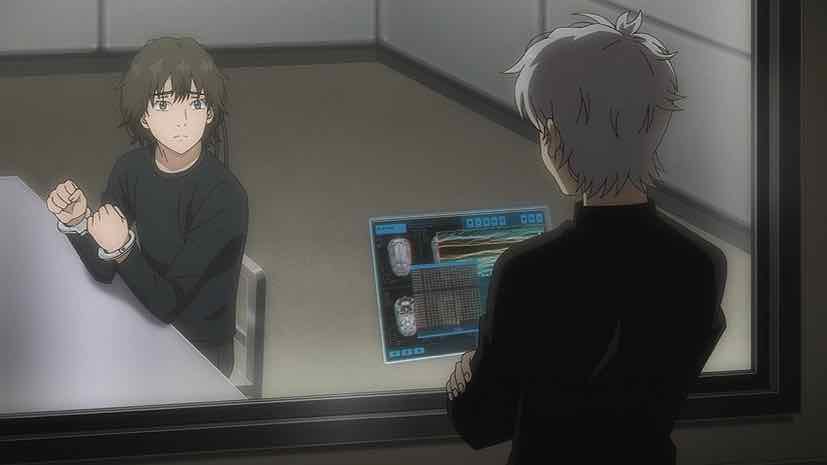
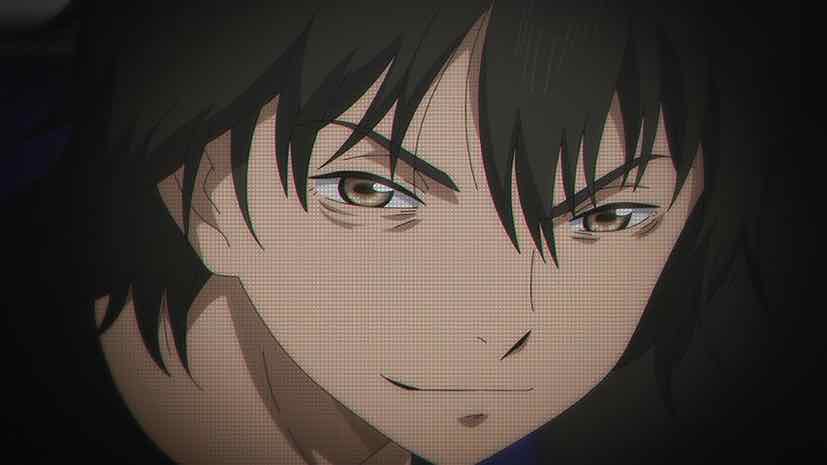
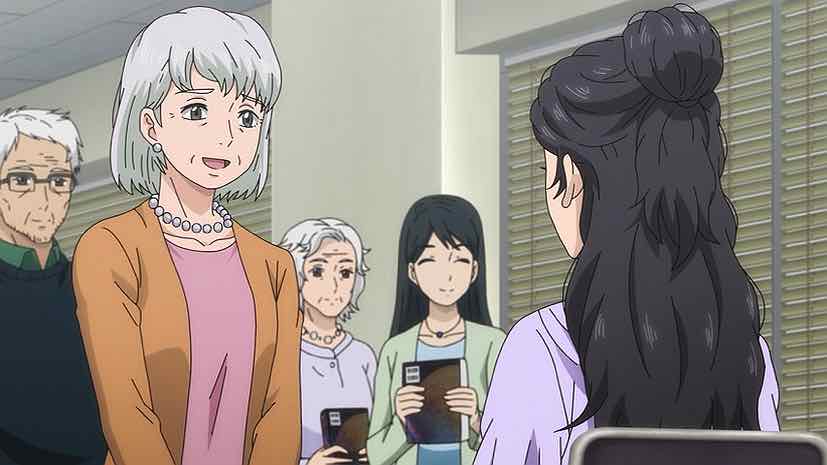
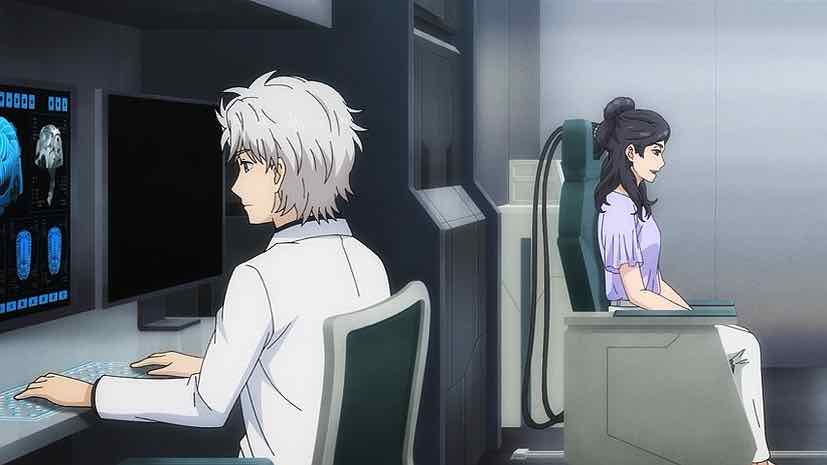
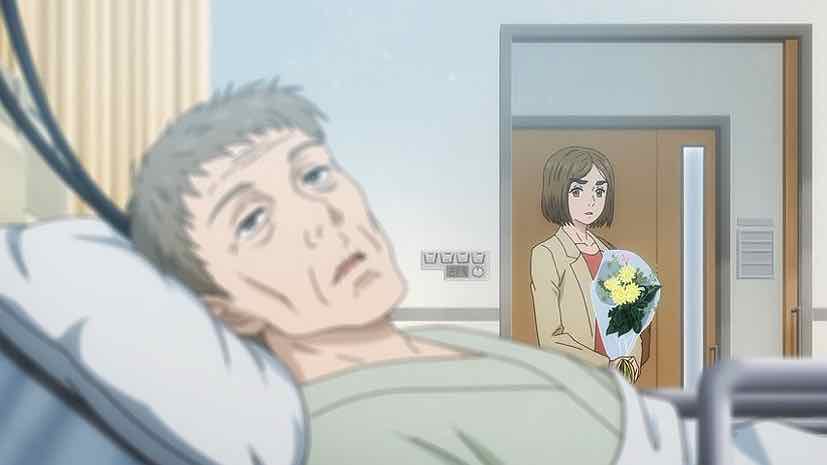
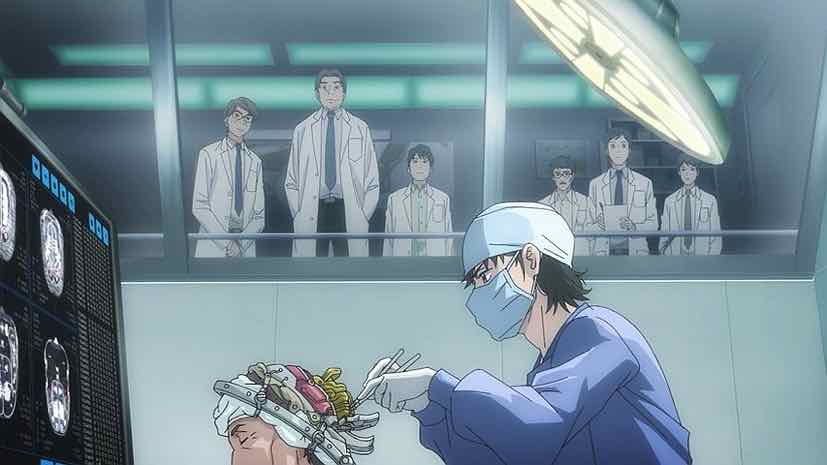
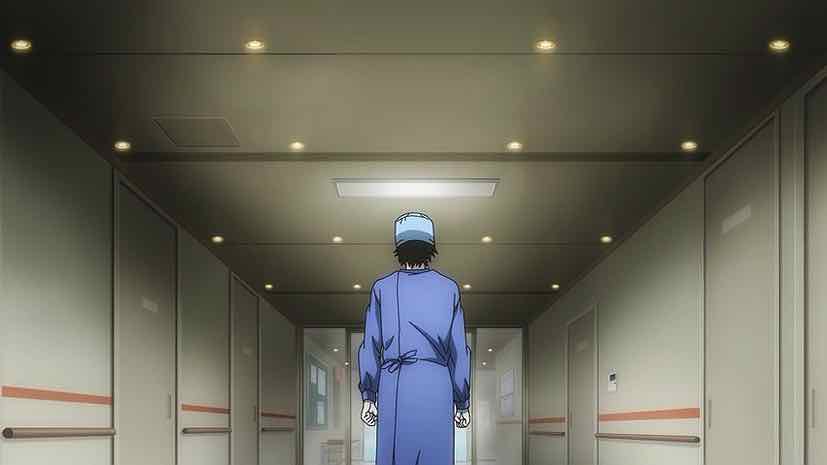

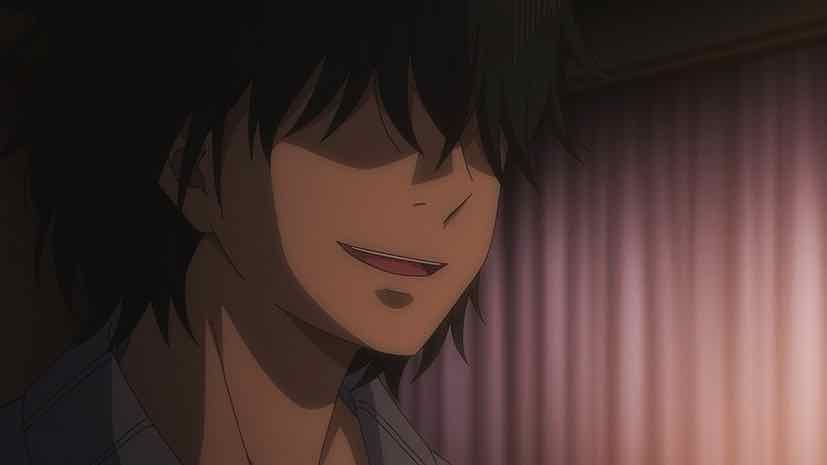
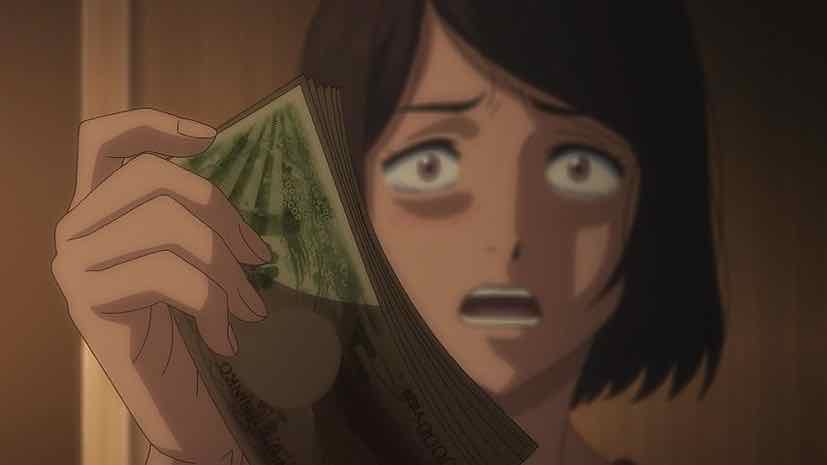

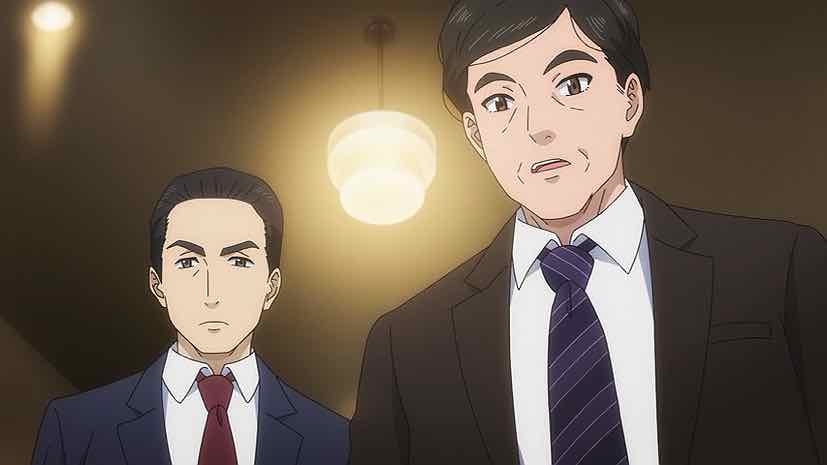
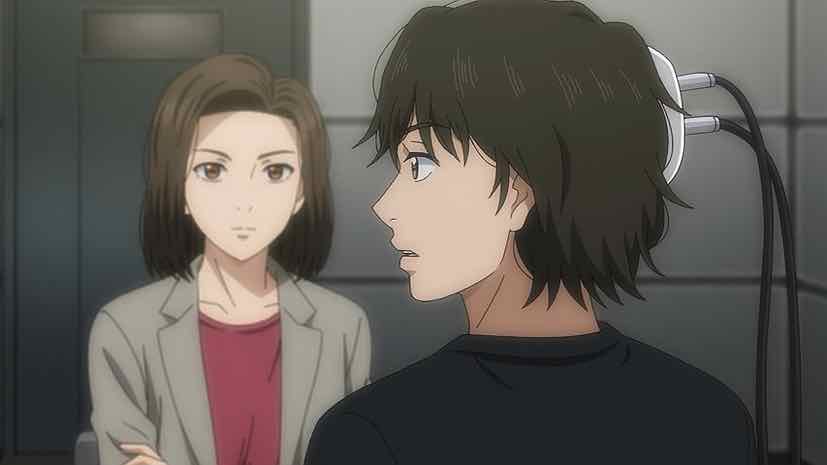
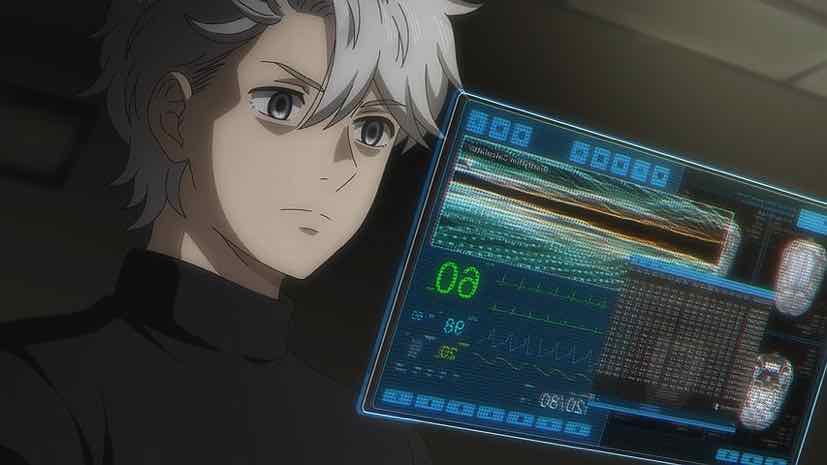

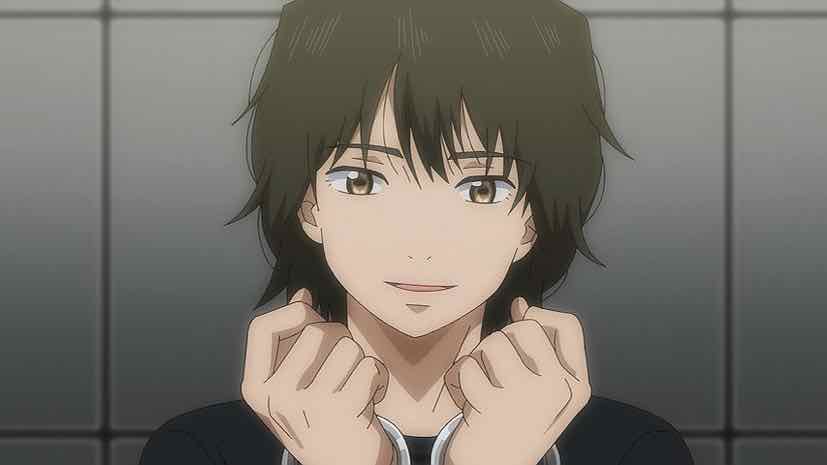
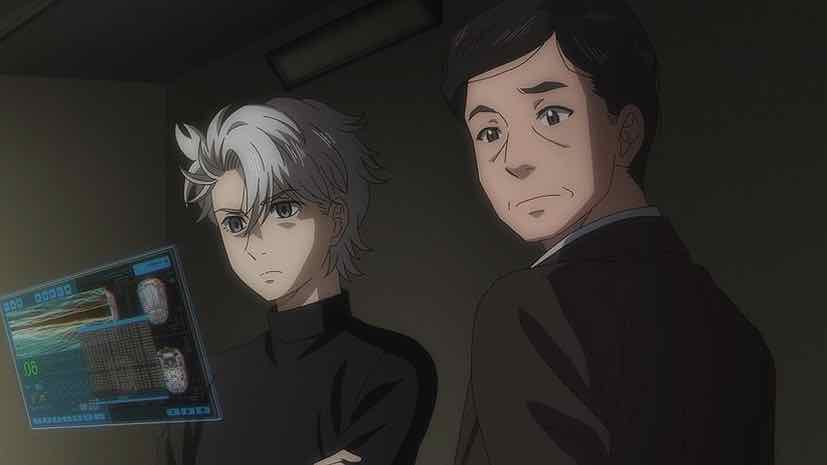
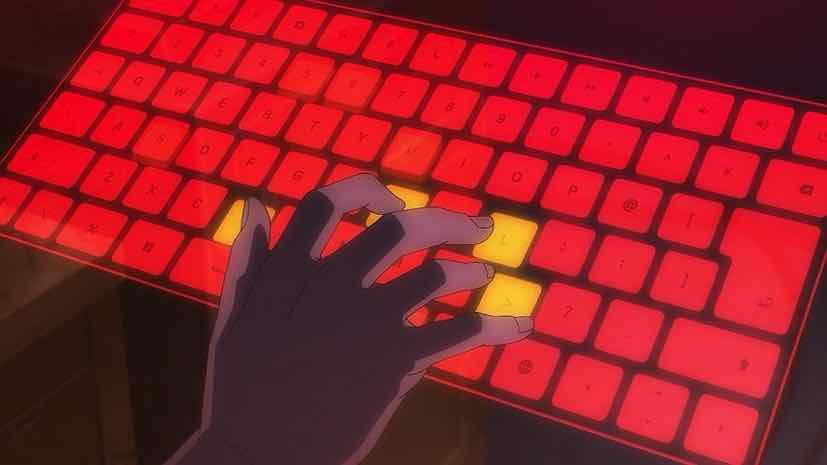

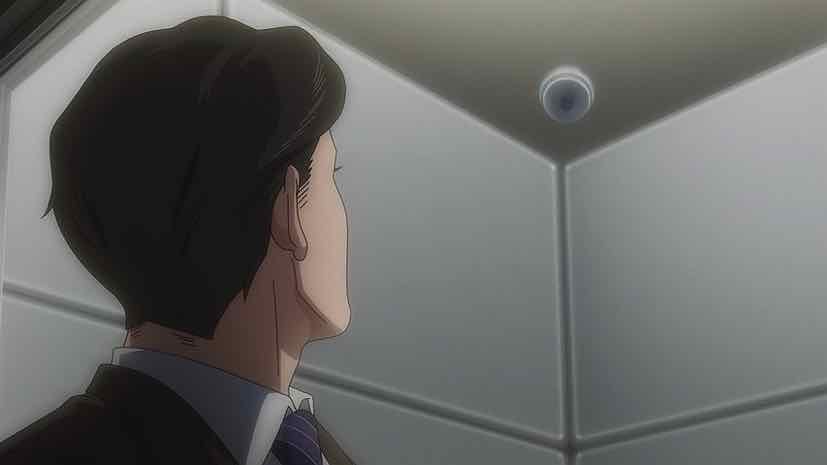
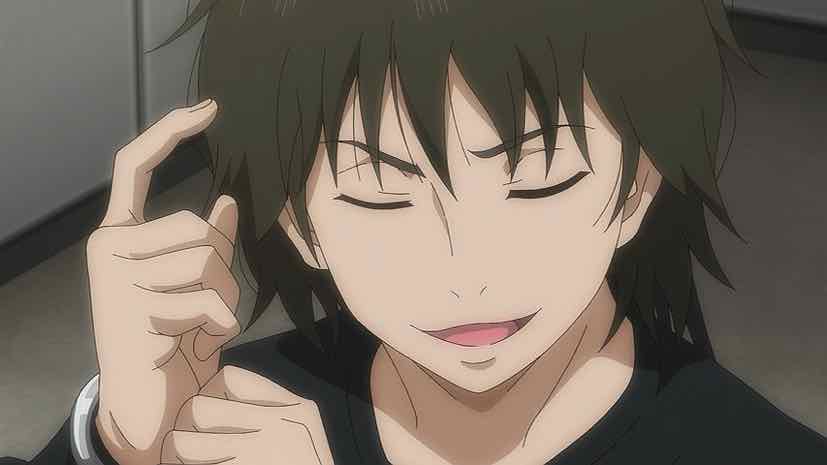
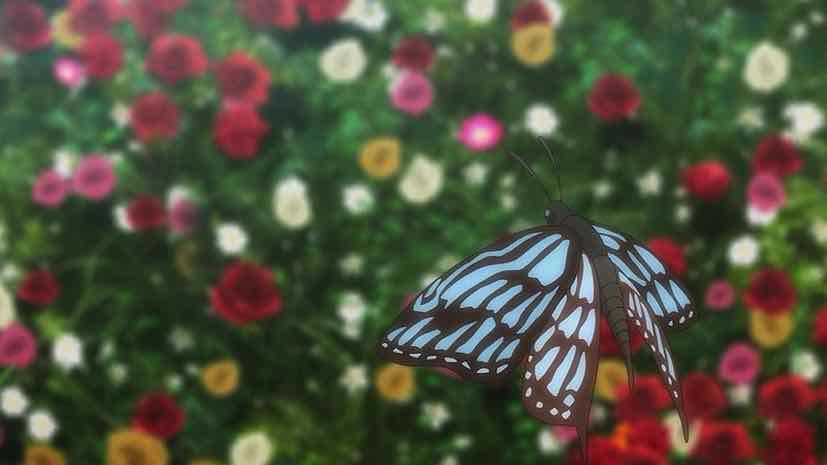
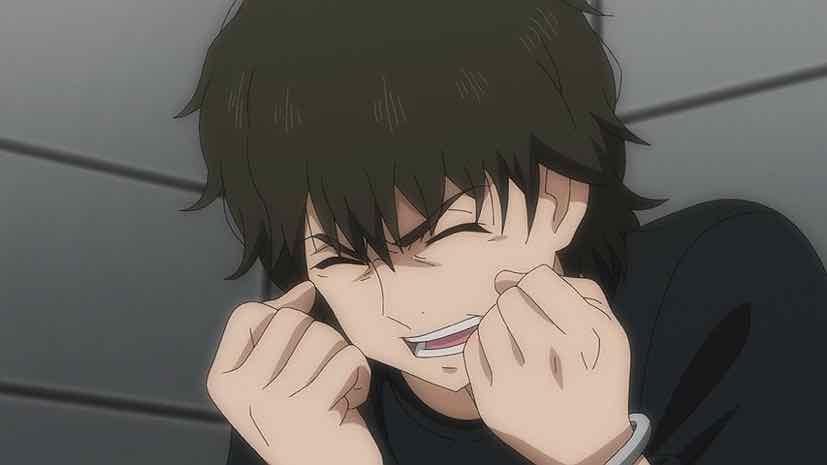


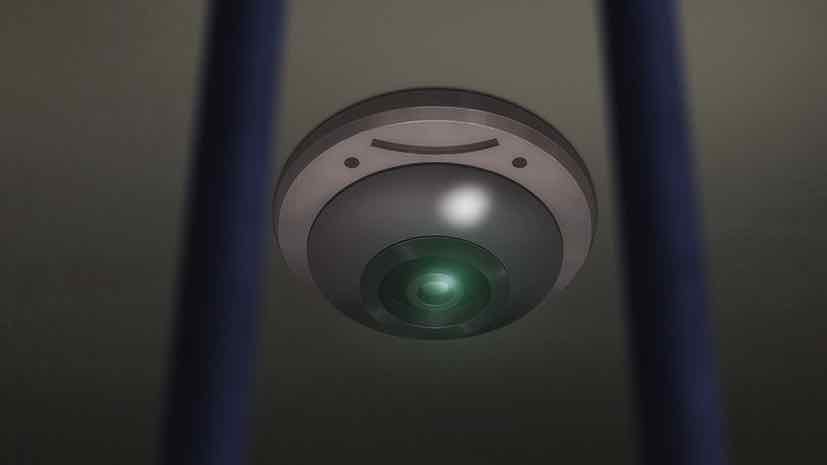

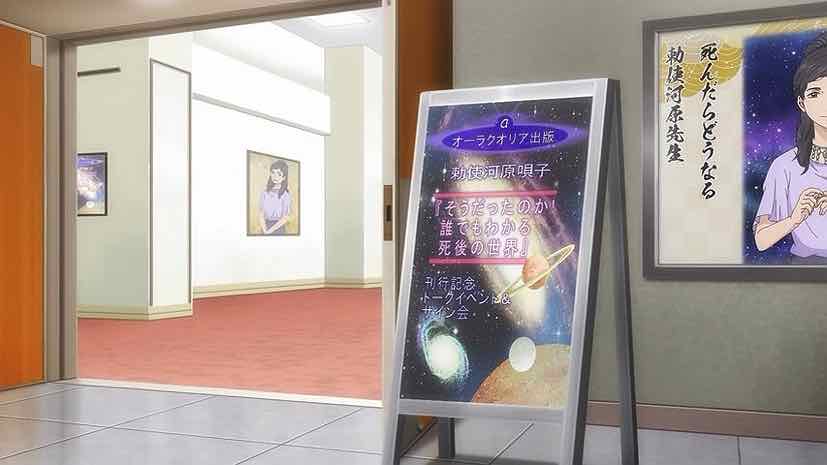
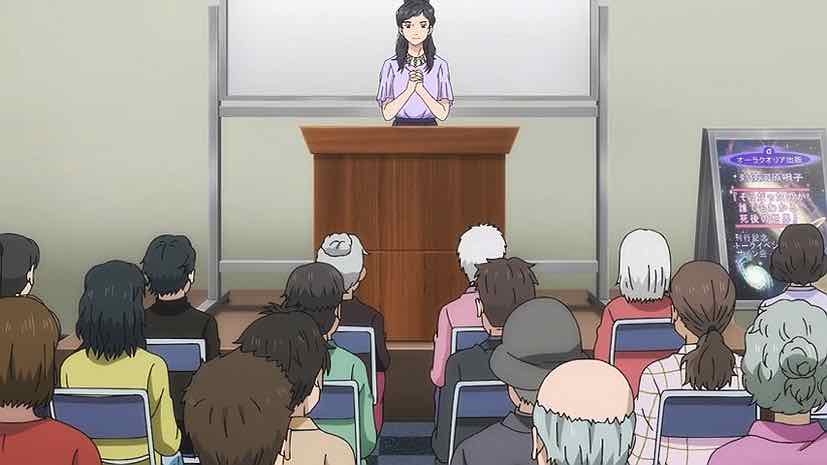


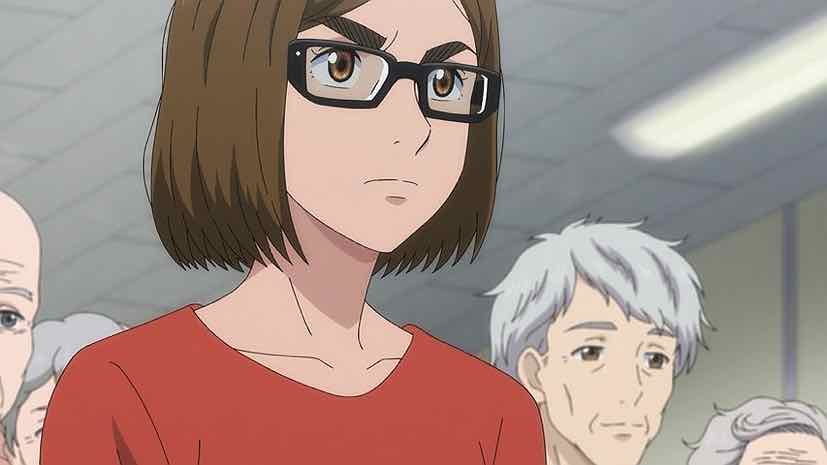
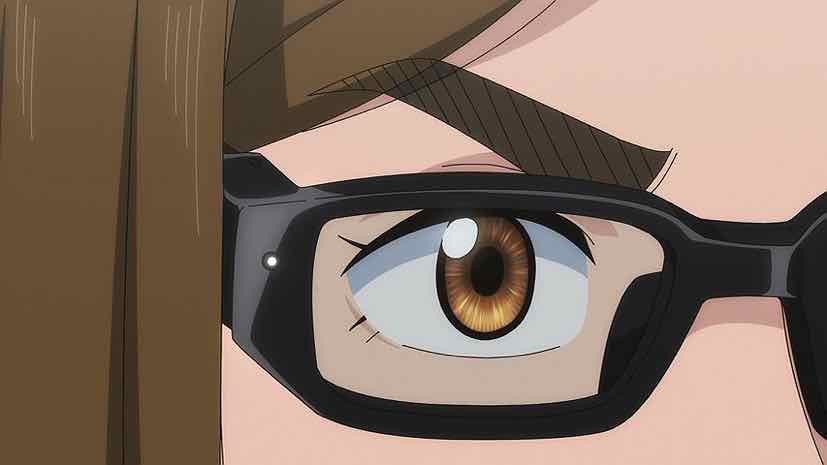
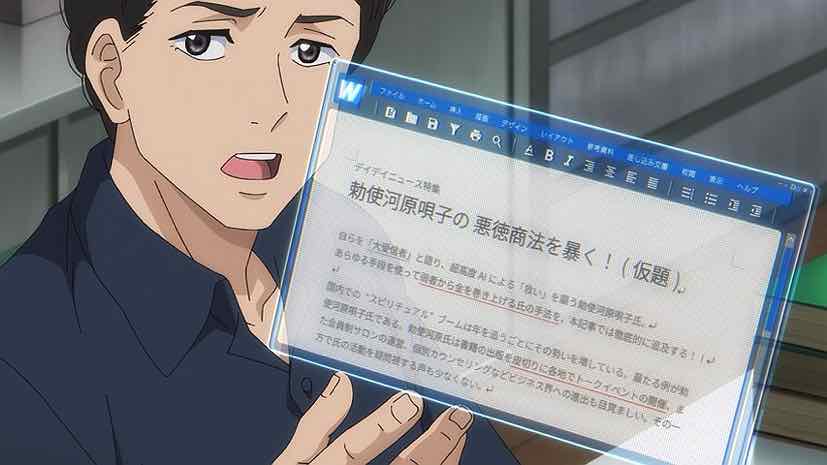
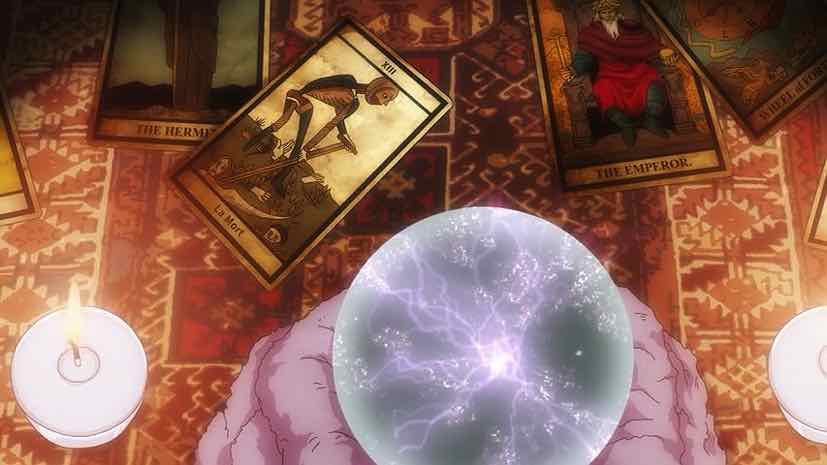
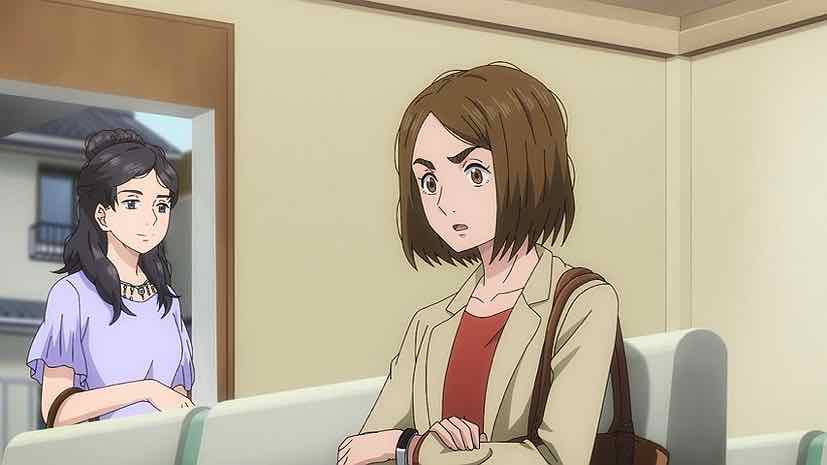
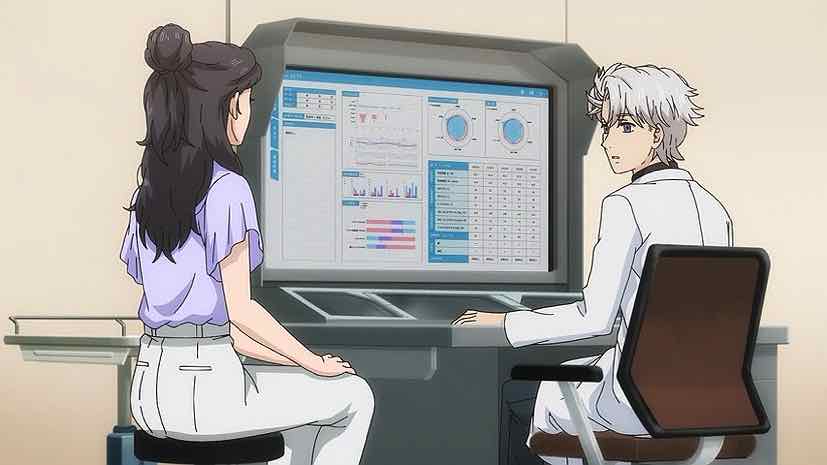

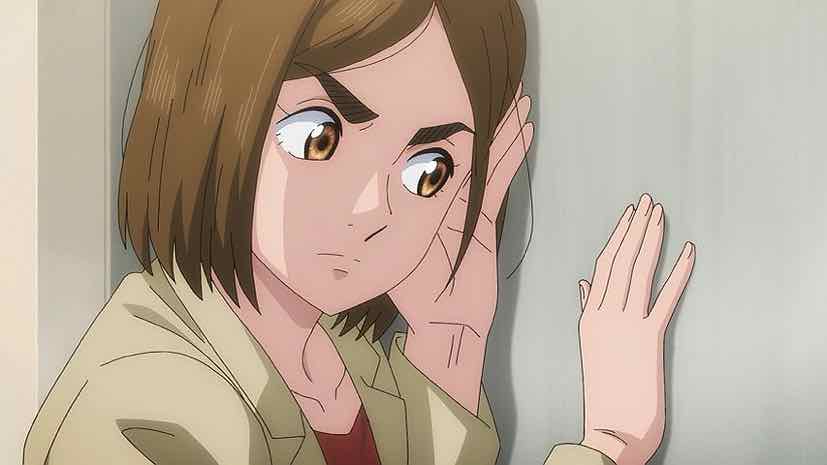

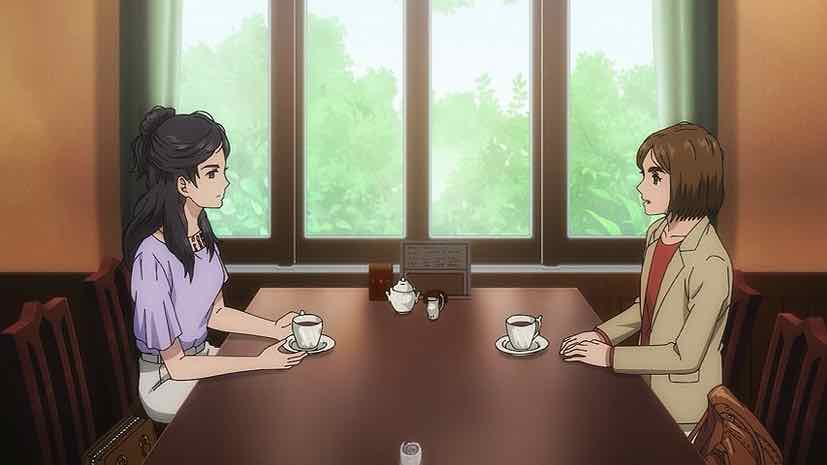

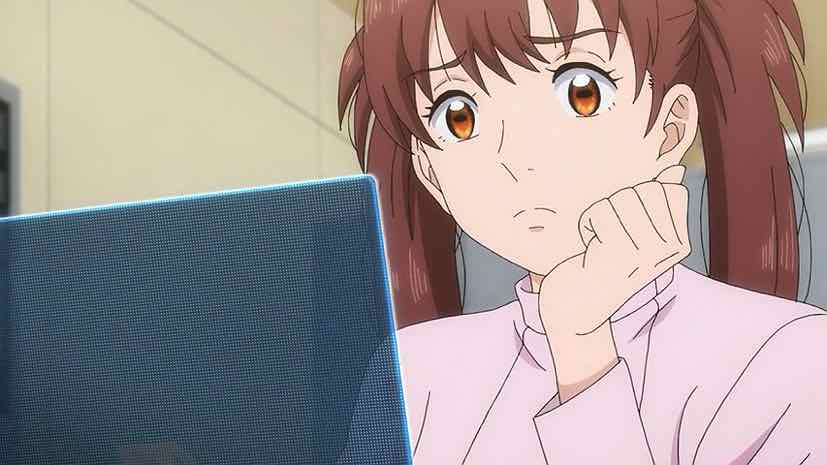
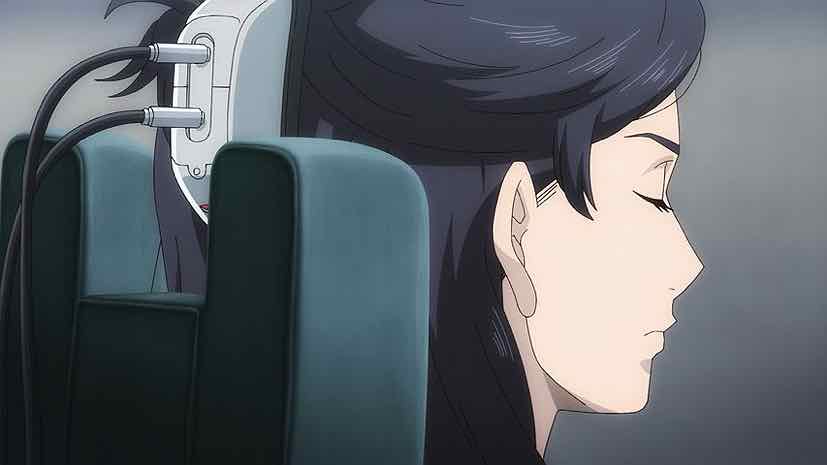

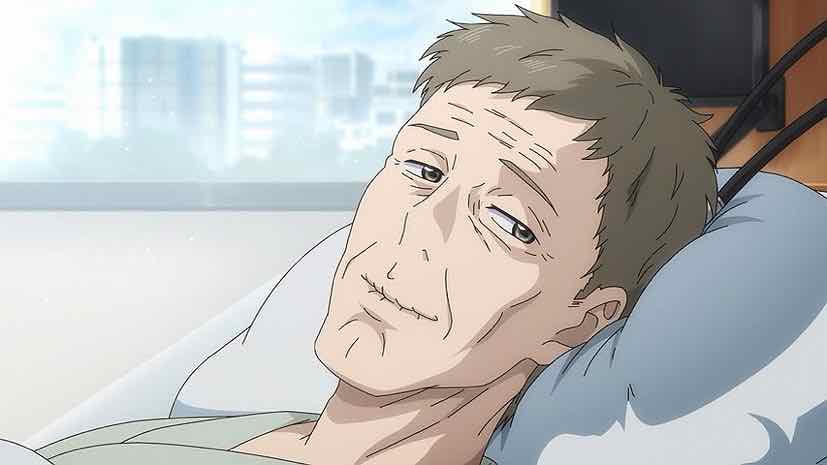


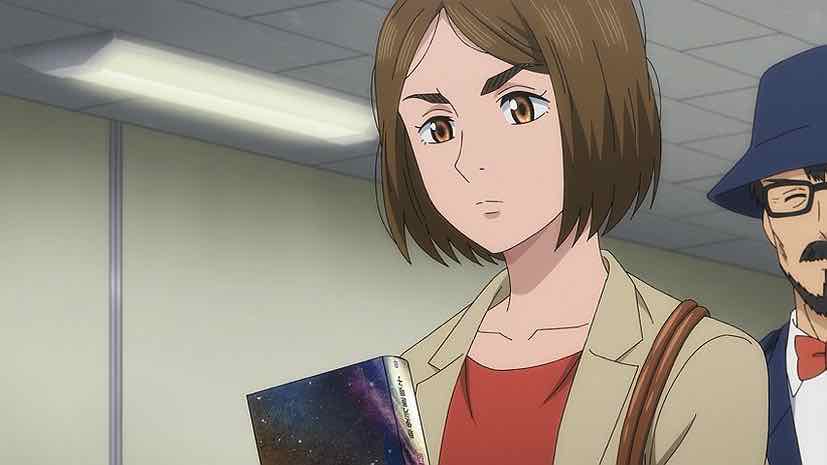
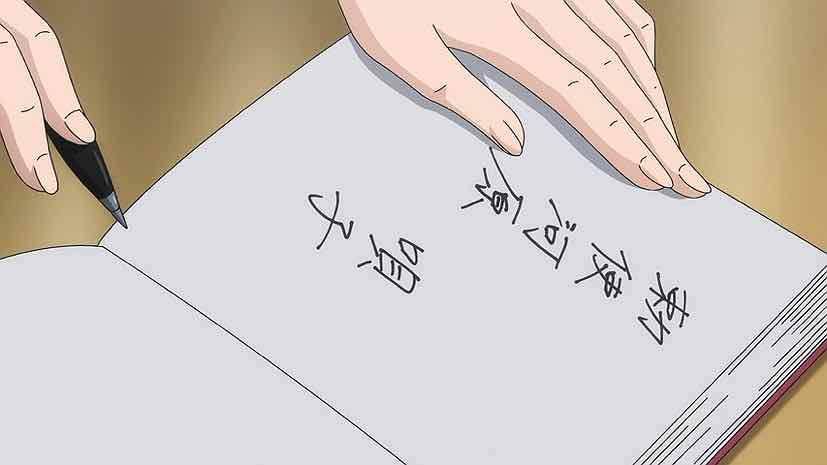
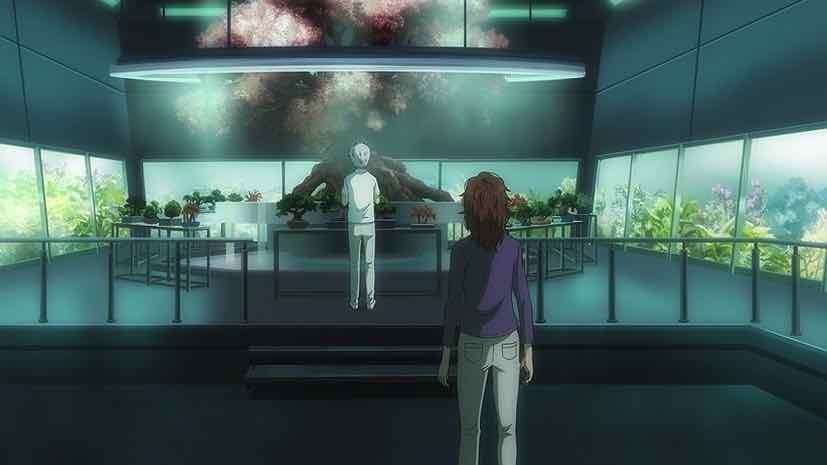
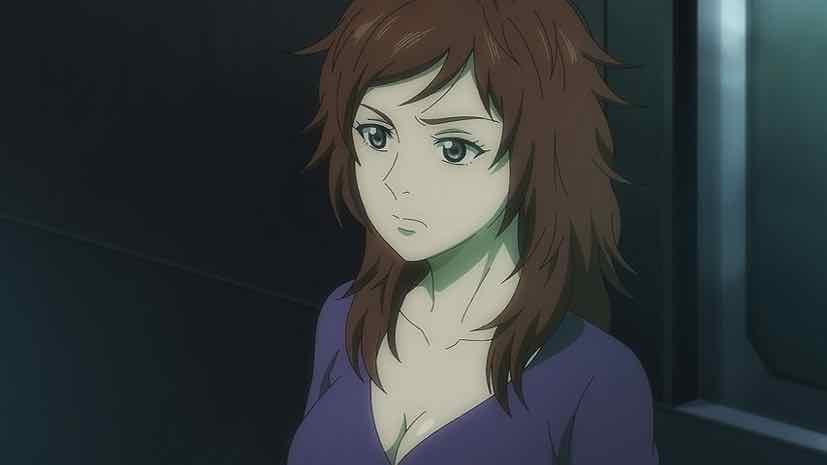


Collectr
September 16, 2023 at 9:20 pmI was glued to this episode from start to finish. The startling incongruity of the unmotivated murder; the physical realization of super AI Michi as a young(ish) boy doing bonsai; and of course, Sudo’s role in all this. Normally, I detest the Serious Development at the end of many series, but AI no Idenshi has earned it. Even its slice-of-life stories have been provocative. The plot mechanics were planted in the first episode and then allowed to grow slowly, often out of sight.
Most recent AI sci-fis have been dystopian: humanity is in danger, a la Terminator. Is it possible that nothing much would change? That a super-sentient AI would be benign, or perhaps, benignly neglectful? (Michi doesn’t seem very interested in upgrading itself to greater capability.) Or perhaps, it would grow bored. In yet another AI speculation, Spike Jonze’s “her”, the AI ultimately abandons humankind altogether, to seek its destiny in the universe, among its own kind.
AI no Idenshi has not been licensed in English, and scanlations are still stuck in volume 1. If the anime decides on a “read the manga” ending, English-speaking readers are out of luck.
SeijiSensei
September 17, 2023 at 4:21 amIs the scene in the hospital room the first time we’ve heard about humanoids reproducing? How, exactly? Does that mean the reporter is also a humanoid, or are their half-human/half-humanoids around as well? Don’t recall this subject coming up before, but it’s certainly possible I missed it?
Sudo’s voice was so familiar, I looked him up and discovered he’s also voicing Hyouga-kun in Monogatari.
Guardian Enzo
September 17, 2023 at 8:23 amI would say there have been inferences that humanoids can reproduce biologically – and with humans too – but it’s never been addressed directly to my recollection.
Yes, pretty good range by Ootsuka with those two characters. They’re very different guys.
Joshua
October 2, 2023 at 9:15 amThe one thing that popped into my head that gave me the biggest realization in this series was the fact that it’s likely Michi is very much inspired by Michio Kaku’s research on the singularity. And yes, I could tell based on the name.
Guardian Enzo
October 2, 2023 at 9:21 amGood catch.